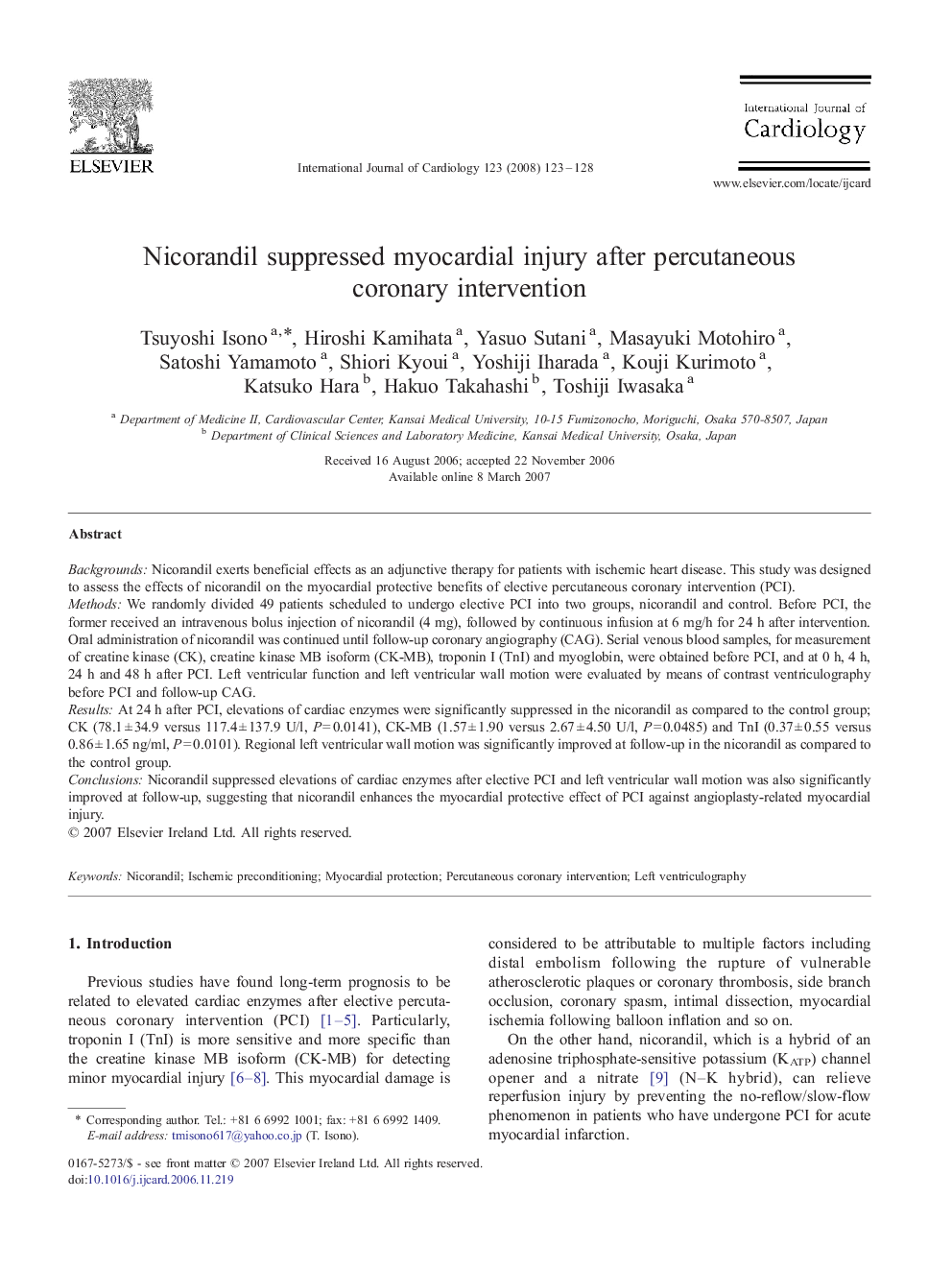| Article ID | Journal | Published Year | Pages | File Type |
|---|---|---|---|---|
| 2934505 | International Journal of Cardiology | 2008 | 6 Pages |
BackgroundsNicorandil exerts beneficial effects as an adjunctive therapy for patients with ischemic heart disease. This study was designed to assess the effects of nicorandil on the myocardial protective benefits of elective percutaneous coronary intervention (PCI).MethodsWe randomly divided 49 patients scheduled to undergo elective PCI into two groups, nicorandil and control. Before PCI, the former received an intravenous bolus injection of nicorandil (4 mg), followed by continuous infusion at 6 mg/h for 24 h after intervention. Oral administration of nicorandil was continued until follow-up coronary angiography (CAG). Serial venous blood samples, for measurement of creatine kinase (CK), creatine kinase MB isoform (CK-MB), troponin I (TnI) and myoglobin, were obtained before PCI, and at 0 h, 4 h, 24 h and 48 h after PCI. Left ventricular function and left ventricular wall motion were evaluated by means of contrast ventriculography before PCI and follow-up CAG.ResultsAt 24 h after PCI, elevations of cardiac enzymes were significantly suppressed in the nicorandil as compared to the control group; CK (78.1 ± 34.9 versus 117.4 ± 137.9 U/l, P = 0.0141), CK-MB (1.57 ± 1.90 versus 2.67 ± 4.50 U/l, P = 0.0485) and TnI (0.37 ± 0.55 versus 0.86 ± 1.65 ng/ml, P = 0.0101). Regional left ventricular wall motion was significantly improved at follow-up in the nicorandil as compared to the control group.ConclusionsNicorandil suppressed elevations of cardiac enzymes after elective PCI and left ventricular wall motion was also significantly improved at follow-up, suggesting that nicorandil enhances the myocardial protective effect of PCI against angioplasty-related myocardial injury.
